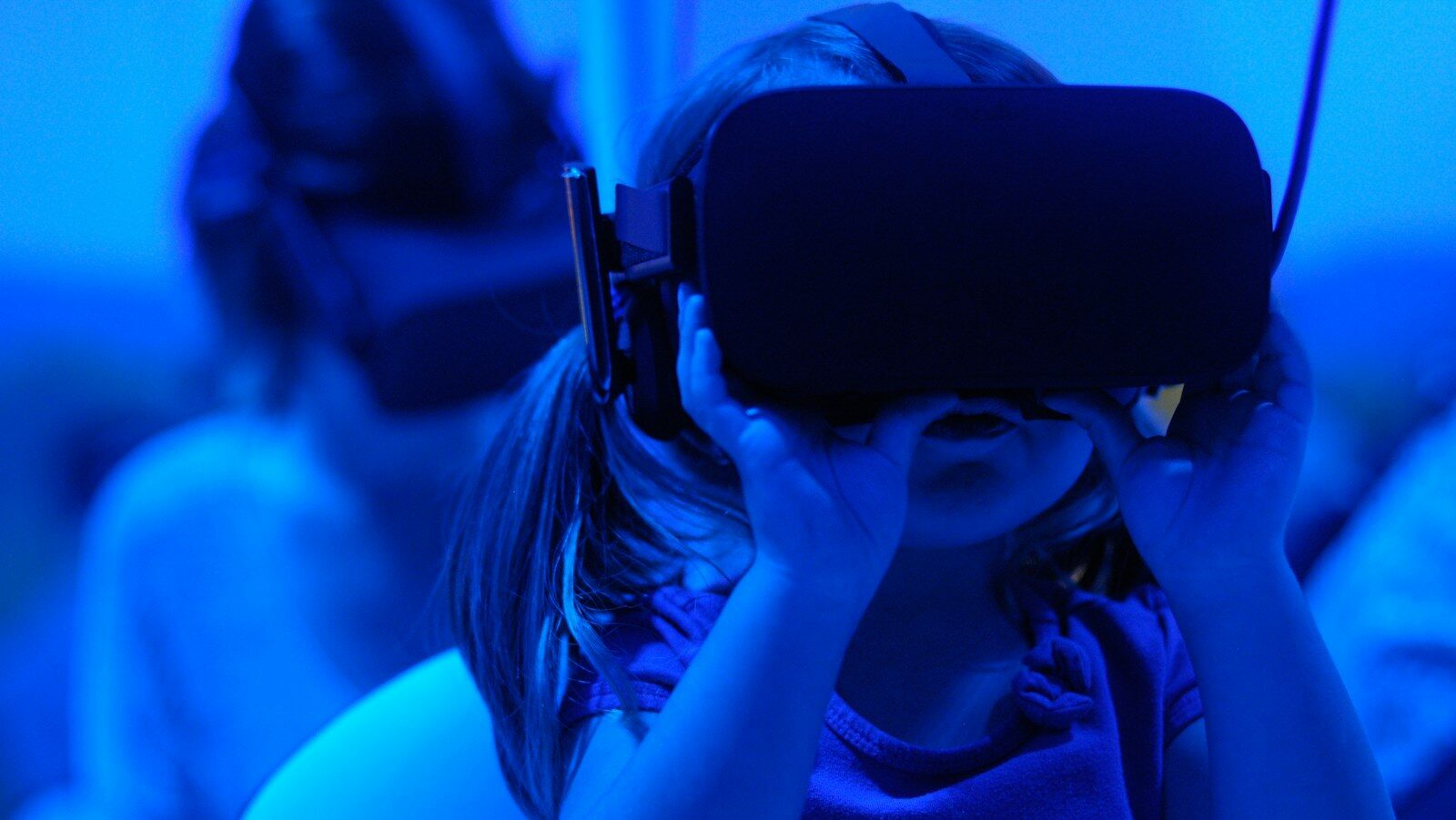Coaching for holistic well-being in a globally interconnected world
Highlights: Explore the Future of Coaching for Well-being
- In this series on well-being, the ICF Thought Leadership Institute applies futures thinking to dissect the trends and influences driving the megatrend of global interconnectedness and its impact on the well-being landscape.
- Key trends influencing well-being include global economic expansion, the globalization of communities, and rapidly advancing technology.
- Understanding the intricate interplay between well-being and culture, generations, and the Ethics of Care framework facilitates impactful coaching.
Coaching to optimize well-being through futures thinking
In the tapestry of human experience, well-being is the vibrant backdrop against which our lives unfold. Well-being is the thread weaving together a sense of physical and mental health, genuine happiness, meaningful work and community, and a profound sense of purpose to achieve life satisfaction. In coaching, well-being is a holistic journey toward individual fulfillment and collective harmony. Combining futures thinking with a coaching mindset offers a unique perspective on how well-being shapes and empowers individuals to construct a resilient life in the face of tomorrow’s challenges with grace and confidence.
In this six-part series, the ICF Thought Leadership Institute explores a different dimension of well-being and the integral role of coaches in enriching the future of individuals and the global community through:
- Caring for Self and others to foster wellness
- Workplace satisfaction and inclusion
- Ecological well-being and sustainability
- Digital well-being and a meaningful digital life
- Social well-being and community connections
- Existential fulfillment and a deeper purpose
Delve into the series:
1. Trends shaping well-being
2. The ethics of care framework and the futures thinking wheel of well-being
3. Other factors influencing well-being and coaching
4. The future of coaching: Adapting to evolving well-being
5. Learn more: Futures thinking in action
1. Trends shaping well-being
The global impact of well-being is substantial. For example, wellness tourism is projected to reach $1.4 trillion by 2027. Many countries are integrating well-being into decision-making to center human and planetary well-being in economic planning. Researchers and governments are assessing well-being indicators beyond happiness and life satisfaction to understand well-being better.
The megatrend of global interconnectedness provides insight into the evolving well-being panorama as a defining feature of the modern world. This megatrend represents the seamless flow of goods, services, capital, people, technology, and data across borders, reinforcing global integration and reshaping economies, societies, the environment, and our daily lives. Global interconnectedness enhances empathy and fosters the development of individuals to become successful professionals, civic leaders, and informed citizens in a diverse national and global society.
The primary drivers powering the global interconnectedness megatrend include global economic expansion, the globalization of community, and rapid technological advancements. Examining these trends further illustrates the impact of global interconnectedness on the future of coaching and the significance of the interdependent and holistic nature of well-being.
The global interconnectedness megatrend is redefining the modern world to create more global community through the trends of global economic expansion, globalization of community, and rapid technological advancements.

Global economic expansion continues to improve global well-being indicators, though global economic inequality remains for some groups.

Globalization of community fosters global empathy and cultural exchange, though it risks diluting local culture and identities.

Rapid technological advancements drive global connectivity and democratize information access, though it may increase the digital divide.
Global economic expansion trend
Global economic expansion is a pivotal trend of the global interconnectedness megatrend. Decades of rapid economic growth have reduced worldwide poverty and improved life expectancies, literacy rates, and other well-being outcomes.
Yet, it has also led to challenges such as job losses, cultural homogenization, and environmental degradation. The complex relationship between globalization, economic growth, and well-being requires careful consideration, with regions experiencing unequal impacts of the global economic expansion trend.
Globalization of community trend
The globalization of community highlights an emerging sense of civic duty and collective action among people and communities worldwide. Enhanced cultural exchanges facilitate global empathy to address collective challenges like climate change and social injustices.
The globalization of community is challenged by an intricate interplay between international community building and individual cultural identities to harness the positive aspects of the globalization of community while safeguarding cultural diversity and individuality.
Rapid technological advancements trend
Rapid technological advancements are far and wide in modern culture, democratizing knowledge access and enabling real-time collaboration across continents. These innovations have spurred significant improvements in various sectors, from healthcare and education to business and governance, contributing to global progress and prosperity. Many rapid technological advancements demonstrate that artificial intelligence, wearables, and big data power the future of well-being.
Yet, this rapid technological evolution has magnified the digital divide, leaving parts of the world behind in technological access and raising concerns about unequal access to emerging technologies.
Signals of the future of global interconnectedness
Signals, or observations of the future in the present, of how the world is changing and shifting towards global interconnectedness include:
- Global expansion has improved worldwide prosperity, paving the way for the emergence of well-being economies that integrate both financial growth and citizens’ well-being. Governments and international groups, such as the United Nations (UN), are launching initiatives to incorporate well-being into policy, economic recovery efforts, and health system investments.
- Re-emerging well-being practices, such as meditation and mindfulness, are being practiced cross-culturally and in communal settings to develop transcendent awareness through experiences that help individuals understand their place in the world from multiple perspectives. Shifting from individual to collective well-being recognizes personal well-being as deeply intertwined with the well-being of others.
- Collaborative international wellness community initiatives signal a future that channels investments toward creating spaces that nurture health, environmental harmony, and communal well-being, embodying a more inclusive and holistic view of daily life.
Signals of the global interconnectedness megatrend

Well-being economies integrate holistic well-being into economic priorities globally.

Well-being practices incorporate transcendent awareness as a foundation to more collective well-being experiences.

Collaborative wellness communities redefine our living spaces to include holistic well-being tools and technology.
ICF Thought Leadership Institute STEERE framework
Analyzing the critical social, technological, economic, ecological, regulatory, and ethical influences on these trends through the STEERE futures thinking framework provides perspective to help coaches prepare for the future.
- Social factors emphasize community-based well-being initiatives as shifts in cultural norms, values, and behaviors foster a more collective approach to health and happiness.
- Changing social norms include a rising focus on mindfulness and mental health awareness leading to more people seeking emotional well-being coaching.
- Future coaching involves facilitating group sessions or community-based programs, aligning with a more collective approach to social change.
- New tools are enabling self-directed health optimization through health trackers.
- Virtual reality and advanced tracking tools enable coaches to offer clients more immersive and engaging experiences.
- A coach’s ability to provide cutting-edge services and meet changing client expectations depends on staying current with emerging technologies.
- Economic factors influence well-being through access to resources, healthcare, education, and wellness services.
- The growth in wellness tourism, corporate well-being programs, and government funding initiatives are a few of the economic trends driving a future well-being economy.
- The future of coaching includes relationships with businesses and government agencies as multi-sector collaboration becomes an integrated part of economic practices.
- Ecological factors, including environmental health and sustainability, are recognized as integral to overall well-being.
- Understanding the connection between nature and personal well-being is ever-present.
- Future coaching focuses on aligning personal growth with environmental sustainability.
- Regulatory frameworks significantly impact well-being by shaping healthcare policies, wellness product standards, and professional coaching practices.
- Future regulation standardizes and elevates the quality of well-being services for safer and more effective practices.
- Future coaching includes more standardized practices and certifications, elevating the professionalism and credibility of the industry.
- Ethical deliberations are integrated into inclusive well-being services and technologies.
- Regulated and safe well-being access includes all communities.
- The future of coaching is focused on ethical standards and practices.
The benefits and challenges of well-being
Benefits:
- Contributing to a cohesive and supportive society to promote stronger social bonds and a sense of community.
- Enhancing public health outcomes for a healthier and more productive society.
- Continuing to reduce societal inequalities.
- Bolstering societal resilience by equipping individuals and communities to better cope with challenges and changes.
Challenges:
- Ensuring that well-being programs are accessible to diverse populations, especially in underserved or remote areas.
- Implementing initiatives across regions and countries, each with unique regulations and cultural expectations.
- Striking a balance between addressing immediate well-being concerns and working towards long-term systemic changes.
2. The ethics of care framework and the futures thinking wheel of well-being
The Ethics of Care approach emphasizes interpersonal relationships and emotional responsiveness by prioritizing empathy and compassion in a relational context.
Ethics of Care principles include:
- Caring decisions are informed by relationships and interdependence.
- Responding to others’ needs as individuals instead of imposing universal care principles on everyone.
- Recognizing emotions informs how we understand and engage with others.
- Applying contextual and situational empathy.
- Valuing moral agency in both giving and receiving care.
- Embracing interdependence and dependency as natural states of the human condition.
- Removing power imbalances and inequalities for more equitable and respectful care relationships.
The Futures Thinking Wheel of Well-being
Guided by the Ethics of Care principles, the Wheel of Futures Thinking model inspires innovative paths for the future of coaching by activating transformative potentials in each area:
- Caring for Self and Others champions communal well-being by emphasizing empathy and attentiveness to individual needs.
- Workplace Well-being cultivates an inclusive and fulfilling work environment.
- Ecological Well-being advocates for a sustainable relationship acknowledging our deep interconnectedness with the natural world.
- Digital well-being embraces the beneficial influence of technology and an enriching digital existence.
- Social Well-being enhances social health and a sense of belonging.
- Existential Well-being encourages a more profound sense of purpose and fulfillment, aligning personal aspirations with existential meaning.

3. Other influences on well-being
Other influences on well-being that shape our sense of well-being include the impact of cultural contexts and the varying perceptions of well-being across different generations.
The link between culture and well-being
Cultural orientation deeply influences well-being, impacting how individuals define success and happiness. For example, collectivist cultures prioritize community and family, while individualistic cultures emphasize individual achievements. Other cultural impacts are:
- Cultural traditions and rituals influence an individual’s sense of belonging and well-being.
- Cultural norms and expectations influence personal goals and life choices, impacting the definition of fulfillment.
Navigating cross-cultural dynamics requires balancing competing cultural expectations and personal desires. Coaches who adapt their coaching approaches to diverse cultural contexts ensure an inclusive and effective coaching practice for clients from various backgrounds.
Generational differences in well-being
The factors that shape well-being across generations include purpose, social connections, finances, community, and physical health, with each generation prioritizing different well-being needs.
Understanding the factors that shape well-being across generations is essential for coaches as it allows them to tailor their coaching strategies to meet the diverse needs of different age groups. Some patterns for coaches to consider include:
- Baby Boomers, nearing retirement, look for financial security, health care coverage, and flexible work arrangements.
- Independent and creative, Generation X prioritizes financial security, work-life balance, career growth, and flexible work.
- Millennials emphasize physical health and experiences over possessions. Under financial stress, this group appreciates support in managing finances.
- Generation Z focuses on personal connections at work, environmental and social awareness, and mental health.
4. The future of coaching: Adapting to evolving well-being
The future of coaching is significantly influenced by the megatrend of global interconnectedness and the trends of global economic expansion, the globalization of community, and rapidly advancing technology. These trends are shaping the well-being landscape and the demand for and delivery of coaching services.
- Coaching is increasingly integrated into organizations and institutions to support human connection, engagement, and personalized development.
- The world’s growing interconnectedness and the globalization of community are leading to an increased demand for coaching services and a greater need for coaching to support leaders in navigating the complexities of a connected and diverse world.
- The rapidly developing use of apps, video conferencing, AI, and VR/AR is altering how coaching is delivered, making it more accessible and scalable.
Preparing for a globally interconnected future
- Building and nurturing a vibrant global network creates knowledge sharing and best practices around global trends and challenges that may impact coaching.
- Embracing digital literacy leverages digital resources and data for more profound coaching outcomes.
- Coaches can explore the world of digital tools, virtual platforms, and AI-enabled resources, enriching the coaching experience and expanding their reach.
- Embracing cross-cultural dynamics empowers coaches to connect with clients from diverse backgrounds.
5. Learn more: Futures thinking in action
Futures thinking uses the “what if” approach to envision and prepare for several possible futures. We invite coaches to imagine a future where a globally interconnected and culturally inclusive coaching community flourishes.
- What if technology advancements enable seamless, real-time translation during coaching sessions?
- What if global peer-coaching communities emerge to facilitate cross-cultural exchange and learning?
- What if coaches adopt augmented reality and holographic tools to create a more immersive coaching experience?
- What “what if” scenarios or ideas do you imagine for the future of coaching?
Resources to Explore
- Explore the Geography of Wellness through the Global Wellness Institute.
- Examine why well-being at the collective level is important.
- Dive more deeply into the Executive Coaching for a Futures Mindset.
- Learn more about the journey from diversity and inclusion to interconnectedness.
- Discover the link between cultural background and coaching.




